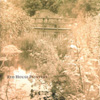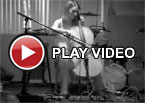Red House Painters, "II"
 Mark Kozelek has recorded several brilliant albums over the last two decades, but this 1993 collection of odds and ends left over from the Red House Painters' first eponymous album is generally not considered one of them. Nevertheless, it remains of his most strangely compelling releases to date and features some of the most achingly perfect distillations of everything that made his early work so unique and powerful.
Mark Kozelek has recorded several brilliant albums over the last two decades, but this 1993 collection of odds and ends left over from the Red House Painters' first eponymous album is generally not considered one of them. Nevertheless, it remains of his most strangely compelling releases to date and features some of the most achingly perfect distillations of everything that made his early work so unique and powerful.
Red House Painters (I) has been one of my favorite albums for ages, but it is by no means a flawless work—far from it, in fact. It can be overly melodramatic and solipsistic at times and has a sprawling and somewhat overwhelming running time. It doesn’t matter though, as Mark Kozelek’s appeal lies in his warmth, honesty, and humanity. He is inconsistent, but when he connects, he does it on a deep and meaningful personal level. He connects quite often on this modest affair—in fact, much more so than on his next couple of “serious” albums. This release certainly lacks coherence and polish, but it has an uncharacteristically unfussed-over intimacy and rawness to it that Mark had a hard-time recapturing. Also, this is a rare chance to hear the band indulge in some of their more outré impulses (they don’t usually work so well, but they are often intriguing to hear).
From the very beginning of “Evil,” it is immediately clear why these songs were orphaned—they don’t sound quite like other Red House Painters’ songs. Although it unexpectedly begins with Kozelek good-naturedly chuckling, “Evil” takes the already slow and melancholic RHP formula and pushes it into a darker, more skeletal, and still slower place. Despite initially centering solely upon Kozelek’s resonant vocals and some delicately picked acoustic arpeggios, it is instantly a very heavy song. The dark tone and the way that Mark slowly and deliberately draws out every single word imbues even somewhat innocuous phrases like “Mom and Dad, is it a boy or a girl?” with an uncomfortable menace. The lengthy spaces between notes and beats create a vacuum that makes every single nuance of the song seem important and fraught with mystery. Then, oddly, the second half of the song shifts gears into an experimental coda of wordlessly repeating and somewhat dissonant falsetto vocals. The next track, “Bubble,” is similarly sparse and glacial, but completely inverts the tone into a lushly melodic and bittersweetly autumnal love song that is one of the best things that Kozelek has ever penned. I love the impossibly slow drumming and beautiful, sleepily unfolding chord progression- the music is the perfect foil for Mark’s lovelorn lyrics, like falling leaves or snow.
It isn’t until the third song, a decent cover of Simon and Garfunkel’s “I Am A Rock,” that things become a bit more conventionally “rock”: chords are strummed, the drummer starts to play like he has emerged from the somnambulant trance of the first two songs, and there is a relatively normal pace and structure. After that, there is a brief return to extreme slow-motion (“Helicopter”) before the band picks up the pace again for two back-to-back classics. “New Jersey” reprises one of Red House Painters I’s best songs with the added inclusion of some unexpectedly enthusiastic drumming, resulting in one of the most warm, immediately gratifying, and catchy songs in RHP’s oeuvre. The deeply confessional and hauntingly powerful “Uncle Joe” follows it.
“Uncle Joe” is one of the most lyrically dark and overtly autobiographical works of Mark’s career, as it is peppered with phrases like “I’m looking at the ceiling with an awful feeling of loss and loneliness” and “the after late-night television pain…I’m running out of strength again.” Even so, it has an extremely strong melody and some subtle flashes of light and humor (“it was unintentional when I spit in your beer. I am over-influenced by movies”) that prevent Kozelek’s unfiltered catharsis from becoming oppressive or overly mopey. It is simply a great song: existential anguish is rarely this poppy and pop is rarely this dark.
Of course, being an out-takes collection of sorts, Red House Painters II can’t help but miss the mark a few times. Kozelek thoughtfully saves the failures for the end of the album though, so they’re easy to avoid. “Blindfold” is initially another pleasantly slumberous piece in the vein of “Helicopter,” but takes that song’s lengthy jamming outro and amplifies it into something quite awful. It goes on for over eight minutes and features some singularly bad primal metal howling for the final stretch (not something this band is generally associated with). The album then limps to an anticlimactic conclusion with a very brief, but very ill-conceived cover of “The Star-Spangled Banner.” Still, the handful of great songs on this album is well-worth investigating. Kozelek certainly went on to release some wonderful and essential late-period albums (like Old Ramon and Ghosts of the Great Highway), but this is the most stripped-down and spacious representation of his darker, more bluntly emotional early period.
Samples:



